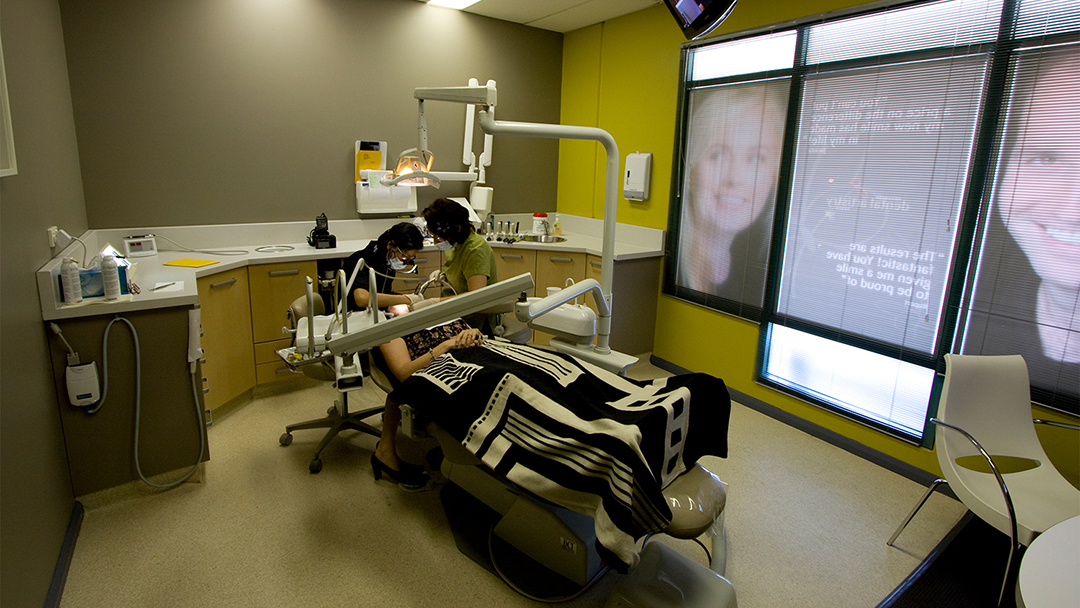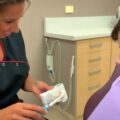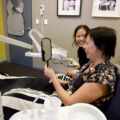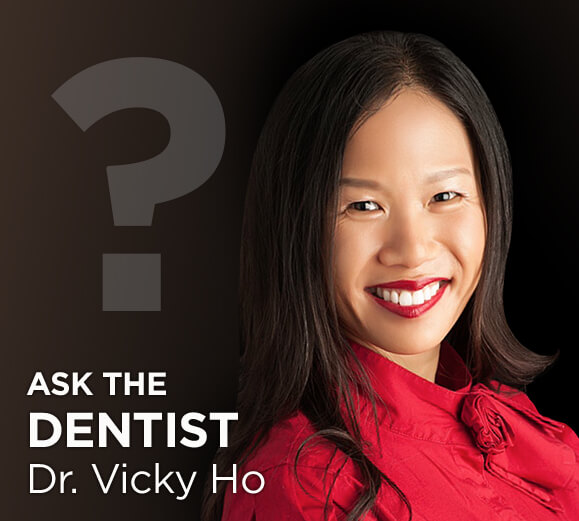Got a broken tooth and wondering if it’s a dental emergency? You’re in the right place. In this post, we’ll clear up the confusion about when a broken tooth needs urgent attention.
We’ll start by identifying what really counts as a dental emergency. Next, we’ll guide you through the immediate actions and first aid for broken teeth, crucial for those first few moments. Understanding the extent and nature of tooth damage is key, as not all tooth issues are created equal.
We’ll also look into your dental care and treatment options and when it’s time to seek professional dental assistance. Plus, we’ll cover preventive measures and long-term oral health to keep your smile in top shape.
By the end, you’ll know exactly when to act and how to prevent future dental problems. Let’s get to it!
Is A Broken Tooth A Dental Emergency?
A broken tooth can indeed be a dental emergency.
When you crack or chip a tooth, it’s not just about the immediate discomfort or the appearance; it’s about preventing further damage that could lead to more serious dental issues. The severity of the break largely determines whether you need to rush to the dentist.
A minor chip might not cause much pain and could wait for a regular appointment. However, if the break has left sharp edges or if there’s pain or bleeding, it’s time to call your dentist right away. In cases where a large piece of tooth has broken off or if the tooth is knocked out entirely, seeking immediate dental care is crucial. These situations can lead to infection or more extensive damage if left untreated.
Remember, every dental injury is unique. Even if you think it’s minor, getting a professional opinion is always a wise choice. It’s not just about fixing the tooth; it’s about safeguarding your overall oral health.
Identifying a Dental Emergency
A dental emergency typically involves situations like severe pain, severe toothache, persistent bleeding, or facial swelling.
If you find yourself in a condition where a piece of tooth breaks or there’s significant tooth breakage, it’s time to book an emergency appointment. Not all dental injuries are medical emergencies, but if there’s a risk of infection or the potential for permanent damage, it’s best not to wait. Any significant injury to your teeth or gums can be serious and should not be ignored.
Ignoring a dental emergency can increase the risk of permanent damage and may require more extensive and expensive treatment later on. Therefore, it’s vital to assess the situation promptly and contact your dentist if you suspect your condition warrants urgent care.
Immediate Actions and First Aid for Broken Teeth
Act fast for quick relief when you break a tooth.
First, rinse your mouth with warm water to clean the area. If there’s bleeding, apply gauze to the area for about 10 minutes or until the bleeding stops. To manage swelling and pain, hold a cold compress against your face for intervals of 20 minutes.
Taking counter pain medication can help ease discomfort, but avoid placing any painkiller directly against the gums near the broken tooth, as this can burn the gum tissue. If you’ve knocked out a tooth, keep it moist by placing it in milk and see a dentist within a couple of hours. Until you get to the dentist, stick to eating cold foods to minimise discomfort.
Understanding the Extent and Nature of Tooth Damage
Assessing the extent of damage is vital after a tooth injury.
A crack in your tooth can range from minor to severe, and understanding this helps determine the right course of action. Minor tooth fractures might not cause immediate pain but can still affect the tooth structure over time. In contrast, a deep crack can signal a more serious underlying issue, especially if it reaches down to the root.
Injuries to adult teeth need prompt attention, as they don’t regrow like children’s teeth. It’s not just the natural tooth that’s at risk; the surrounding soft tissue and gum tissues can also be impacted. Even if the damage seems minor, it’s important to get it checked to prevent long-term complications. Remember, what might seem like a small issue at the surface could be more significant beneath.
Dental Care and Treatment Options
There are various dental treatment options for broken teeth. The choice depends on the severity of the damage.
For minor chips, dental fillings or bonding can effectively restore the tooth. If a larger portion of the tooth is damaged, a dental crown may be needed to cover and protect the tooth.
In cases where the damage extends to the tooth’s pulp, root canal treatment is often necessary. This procedure involves removing the damaged pulp, cleaning the inner part of the tooth, and then sealing it. If the tooth is severely damaged and cannot be saved, tooth extraction might be the only option, followed by a restoration such as an implant or a bridge.
During your dental visit, the dentist will conduct a thorough examination to assess the extent of damage and discuss the options with you. Some procedures are more invasive than others, and in certain cases, temporary solutions like dental cement can be used as a short-term fix until a more permanent treatment is performed.
When to Seek Professional Dental Assistance
If you experience severe dental pain, tooth sensitivity, or signs of tooth decay, it’s time to make a dental appointment.
Some situations, like a knocked-out tooth or severe pain, may require a same-day appointment with your dental practitioner. Don’t wait for regular check-ups if you notice any warning signs indicating a potential problem with your oral health. Even if the symptoms seem minor, getting timely medical attention can prevent more serious complications.
Seek professional dental assistance whenever you’re unsure about a dental issue. Remember, early intervention by a professional is key to maintaining your overall oral health.
Preventive Measures and Long-Term Oral Health
Preventing dental issues is key to maintaining oral health.
Good dental hygiene, including thorough brushing and flossing, helps remove food debris and reduce the risk of tooth decay and gum disease. Avoiding over-the-counter counter medication that can harm your teeth is also essential. Instead, focus on a balanced diet and avoid foods that are too hard or sticky.
Regular dental care check-ups are crucial. Scheduling a regular appointment with your dentist allows for early detection and treatment of any dental issues. These routine visits not only keep your teeth and gums healthy but also offer an opportunity for your dentist to provide specific advice on maintaining good oral health. Remember, a proactive approach to dental health can save you from complex procedures in the long run.
Take Action with Smile Design Studio: Schedule Your Emergency Dental Consultation Today
Don’t wait in pain – contact an emergency dentist at Smile Design Studio now.
When dental emergencies strike, immediate action is crucial. Whether it’s a severe toothache, a broken tooth, or any urgent dental issue, our team at Smile Design Studio is here to provide rapid, compassionate care. With state-of-the-art facilities and expert staff, we’re equipped to handle your dental emergencies with the utmost professionalism and care.
Need help right away? Make your move towards relief and peace of mind. Call us at (08) 9468 3322 for an emergency consultation. Our prompt response and expert treatment can be the difference between saving or losing a tooth, and we’re committed to providing the best possible outcome for your dental health. Don’t let dental pain hold you back – take control and call Smile Design Studio today.









